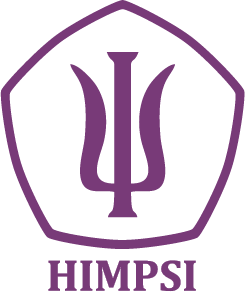PERAN ACADEMIC SELF-EFFICACY DAN PEER SUPPORT TERHADAP ACADEMIC BURNOUT MAHASISWA PENULIS SKRIPSI
DOI:
https://doi.org/10.25170/manasa.v13i2.5421Keywords:
academic self-efficacy, peer support, academic burnoutAbstract
Completing a thesis is a major academic milestone but often leads to fatigue, stress, and academic burnout. This study examined the roles of academic self-efficacy (an internal factor) and peer support (an external factor) in academic burnout among 7th-semester psychology students completing a 3.5-year thesis at Atma Jaya Catholic University of Indonesia. The study used a quantitative predictive design with 61 participants from the 2020 cohort. Data were collected using the Maslach Burnout Inventory–Student Survey (MBI-SS), The Academic Self-efficacy Scale, and the Peer Support Scale. Multiple linear regression analysis was conducted to assess the relationships among the variables. Results indicated that academic self-efficacy and peer support together significantly influenced academic burnout. Academic self-efficacy showed a significant negative contribution, while peer support had a negative but nonsignificant effect. Burnout levels among participants ranged from moderate to low, while academic self-efficacy and peer support levels were high. Future research could explore the relationship between 3.5-year thesis completion and positive psychological variables related to academic achievement at the Faculty of Psychology, Atma Jaya Catholic University of Indonesia.
References
Aguayo, R., Canadas, G. R., Assbaa-Kaddouri, L., Fuente, G. C. L., Ramirez-Baena, L., & Ortega-Campos, E. (2019). A risk profile of sociodemographic factors in the onset of academic burnout syndrome in a sample of university students. International Journal of Environmental Research and Public Health, 16(5). https://doi.org/10.3390/ijerph16050707
Anastasi, A., & Urbina, S. (1997). Psychological testing (7th ed.)
Andi, Y., Sunaryo, H., & Anwarudin, M. K. (2020). Pengaruh dukungan sosial, self-esteem, dan self-efficacy terhadap burnout mahasiswa (studi kasus pada mahasiswa jurusan manajemen fakultas ekonomi dan bisnis universitas islam malang. Jurnal Riset Manajemen, 17–30.
Arlinkasari, F., & Akmal, S. Z. (2017). Hubungan Antara school engagement, academic self-efficacy Dan Academic Burnout Pada Mahasiswa. Humanitas (Jurnal Psikologi), 1(2), 81. https://doi.org/10.28932/humanitas.v1i2.418
Arnett, J. J. (2013). Adolescence and emerging adulthood: A cultural approach. NJ: Pearson
Astuti, T. P., & Hartati, S. (2013). Dukungan sosial pada mahasiswa yang sedang menyusun skripsi (Studi fenomenologis pada mahasiswa fakultas psikologi UNDIP). Jurnal Psikologi Undip, 12(1), 1-13. https://doi.org/10.14710/jpu.12.1.1-13
Assholekhah, A. F., Fitriani, A., Sarwono, Fatoni, S. A., & Suryandari, M. (2023). Problem solving mahasiswa dalam menghadapi tantangan dunia kerja. Student Scientific Creativity Journal (SSCJ), 1(1), 345–352. https://doi.org/https://doi.org/10.55606/sscj-amik.v1i1.1132
Bandura, A. (1997). Self-efficacy the exercise of control. New York: W. H Freeman and Company.
Bandura, A., & Schunk, D. H. (1981). Cultivating competence, self-efficacy, and intrinsic interest through proximal self-motivation. Journal of Personality and Social Psychology, 41(3), 586–598. https://doi.org/10.1037/0022-3514.41.3.586
Bernetta. (2021, 21 Juni). Burn out musuh terbesar mahasiswa yang mesti dihindari. kuliahdimana.id. https://kuliahdimana.id/index.php/berita/read/604/Burn-Out-Musuh-Terbesar-Mahasiswa-yang-Mesti-Dihindari
Cahyasari, E. A., Susilo, D., & Tedjawidjaja, D. (2022). Hubungan Antara religiositas dengan hardiness pada Mahasiswa Katolik Tingkat Akhir di surabaya. Experientia: Jurnal Psikologi Indonesia, 10(1), 31–45. https://doi.org/10.33508/exp.v10i1.3769
Cohen, R. J., & Swerdlik, M. E. (2009). Psychological testing and assessment: An introduction to tests and measurement (7th ed.). New York: Mc Graw Hill Education.
Coopersmith, S. (1967). Antecedents Of Self Esteem. San Francisco: W.H. Freeman and Company.
Creswell, J. W. (2015). Educational research: Planning, conducting and evaluating quantitative and qualitative research (5th ed.). Pearson.
Crocker, L. & Algina, J. (2008). Introduction to Classical & Modern Test Theory. United States of America: Cengage Learning.
Darmayanti, K. K., Anggraini, E., Winata, E. Y., & Mardianto, M. F. (2021). Confirmatory factor analysis of the academic self-efficacy scale: An indonesian version. Jurnal Pengukuran Psikologi Dan Pendidikan Indonesia (JP3I), 10(2), 118–132. https://doi.org/10.15408/jp3i.v10i2.19777
Duran, A., Extremera, N., Rey, L., Berrocal, P. F., Montalban, F. M. (2006). Predicting academic burnout and engagement in educational settings: Assessing the incremental validity of perceived emotional intelligence beyond perceived stress and general self-efficacy. Psicothema, 158-164.
Ender, S. C., & Newton, F. B. (2000). Students helping student: a guide for peer educators on college campuses. California: Jossey-Bass, Inc.
Etika, N., & Hasibuan, W. F. (2016). Deskripsi masalah mahasiswa yang sedang menyelesaikan skripsi. Jurnal Kopasta, 3(1), 40-52. https://journal.unrika.ac.id/index.php/kopastajournal/article/download/265/250
Eriyana. (2021) Profil burnout pada mahasiswa tingkat akhir angkatan 2018 fakultas keguruan dan ilmu pendidikan universitas muhammadiyah tasikmalaya. Tasikmalaya: Universitas Muhammadiyah Tasikmalaya.
Fakultas Psikologi Universitas Katolik Indonesia Atma Jaya. (2021). Buku saku mahasiswa peraturan akademik dan kurikulum 2021.
Fauziah, N. (2014). Empati, persahabatan, dan kecerdasan adversitas pada mahasiswa yang sedang skripsi. Jurnal Psikologi Undip, 13(1), 78–92. https://doi.org/10.14710/jpu.13.1.78-92
Farkhah, S. B., Hasanah, M., & Amelasasih, P. (2022). Pengaruh academic burnout terhadap prokrastinasi akademik dalam menyusun skripsi pada mahasiswa. Conseils : Jurnal Bimbingan Dan Konseling Islam, 2(1), 47–57. https://doi.org/10.55352/bki.v2i1.136
Field, A. P. (2009). Discovering statistics using spss (3rd ed.). SAGE.
Fun, L. F., Kartikawati, I. A., Imelia, L., & Silvia, F. (2021). Peran bentuk social support terhadap academic burnout pada mahasiswa psikologi di universitas “x” bandung. Mediapsi, 7(1), 17–26. https://doi.org/10.21776/ub.mps.2021.007.01.3
Ghozali, I. (2018). Aplikasi Analisis Multivariate Dengan Program SPSS 25 (Vol. 105). Badan Penerbit Universitas Diponegoro.
Gold, Y., & Roth, R. A. (1993). Teachers managing stress and preventing burnout: The professional health solution. London: The Flamer Press.
Hanapi, I., & Agung, I. M. (2018). Dukungan sosial teman sebaya dengan self efficacy dalam menyelesaikan skripsi. Jurnal RAP, 9(1), 37-45. https://doi.org/10.24036/rapun.v9i1.10378
Handayani, T. (2015). Relevansi lulusan perguruan tinggi di indonesia dengan kebutuhan tenaga kerja di era global. Jurnal Kependudukan Indonesia, 10(1), 53-64. https://doi.org/10.14203/jki.v10i1.57
Hidayat, V. (2019). Kebermaknaan hidup pada mahasiswa semester akhir. Jurnal Psikologi Integratif, 6(2), 141-151. https://doi.org/10.14421/jpsi.v6i2.1491
Husna, N., Arif, L. S., & Wahid, M. (2022). Hubungan antara self-efficacy terhadap prestasi akademik pada mahasiswa kedokteran gigi. Cakradonya Dent J, 14(2), 112–121. https://doi.org/ https://doi.org/10.24815/cdj.v14i2.29954
Jacobs, S. R., & Dodd, D. K. (2003). Student burnout as a function of personality, social support, and workload. Journal of College Student Development, 44(3), 291-303.
JJ. Siang. (2009). Cara cepat menyusun skripsi. Yogyakarta: Media Pressindo.
Kemendikbud. (2020). Permendikbud nomor 3 tahun 2020 tentang standar nasional
pendidikan tinggi. Jakarta: Kemendikbud https://jdih.kemdikbud.go.id/arsip/Salinan%20PERMENDIKBUD%203%20TAHU N%202020%20FIX%20GAB.pdf
Khairani, Y., & Ifdil. (2015). Konsep burnout pada mahasiswa bimbingan dan konseling. Konselor, 4(4). https://ejournal.unp.ac.id/index.php/konselor/article/view/6474/5027
Kim, Boram, Lee, J., & Lee, S. M. (2017). Relationships between social support and student burnout: A meta analytic approach. 34(6), 127–134. https://doi.org/10.1002/smi.2771
Kim, K. T. (2020). A structural relationship among growth mindset, academic grit, and academic burnout as perceived by korean high school students. Universal Journal of Educational Research, 8(9), 4009–4018. https://doi.org/10.13189/ujer.2020.080926
Maslach, C., Schaufeli, W. B., & Leiter, M. P. (2001). Job burnout. Annual Review of Psychology, 52, 397–422. https://doi.org/10.1146/annurev.psych.52.1.397
Maslach, C. (2003). Burnout: The cost of caring. ISHK.
Maslach, C., & Leiter, M. P. (2016a). Understanding the burnout experience: Recent research and its implications for psychiatry. World Psychiatry, 15(2), 103-111. https://doi.org/10.1002/wps.20311
Maslach, C. and Leiter, M.P. (2016b) Burnout. In: Stress: Concepts, Cognition, Emotion, and Behavior, Academic Press, Cambridge, 351-357. https://doi.org/10.1016/B978-0-12-800951-2.00044-3
Meier, S. F., Schmeck, R.R. (1985). The burned-out college student: a descriptive profile. Journal of College Student Personnel, 26(1), 63–69.
Miller, L. A., & Lovler, R. L. (2020). Foundations of Psychological Testing: A Practical Approach (6th ed.). SAGE.
Nunnally, J.C., & Bernstein, I.H. (1994) The Assessment of reliability. psychometric theory, 3, 248-292.
Rahmati, Z. (2015) The study of academic burnout in student with high and low level of self-efficacy. Social and Behavioral Sciences, 49-55. https://doi.org/10.1016/j.sbspro.2015.01.087
Ramist, L. (1981). College student attrition and retention. Findings (ETS) 6, 1–4.
Redityani, N. L., & Susilawati, L. K. (2021). Peran resiliensi dan dukungan sosial terhadap burnout pada mahasiswa fakultas kedokteran universitas udayana. Jurnal Psikologi Udayana, 8(1), 86-94. https://doi.org/10.24843/jpu.2021.v08.i01.p09
Rustika, I. M. (2012). Efikasi diri: Tinjauan teori albert bandura. Buletin Psikologi, 20, 18–25. https://doi.org/https://journal.ugm.ac.id/buletinpsikologi/article/view/11945/8799
Santrock, J. W. (2019). Life-span development (17th ed.). McGraw-Hill Education.
Santrock, J. W. (2023). Adolescence (18th ed.). McGraw Hill Education.
Sagone, E., & De Caroli, M. E. (2014). Locus of control and academic self-efficacy in university students: The effects of self-concepts. Procedia-Social and Behavioral Sciences, 114, 222-228. https://doi.org/10.1016/j.sbspro.2013.12.689.
Sarafino, E. P., & Smith, T. W. (2014). Health psychology: Biopsychosocial interactions. John Wiley & Sons.
Satici, S. A., & Can, G. (2016). Investigating academic self-efficacy of university students in terms of socio-demographic variables. Universal Journal of Educational Research, 4(8), 1874–1880. https://doi.org/10.13189/ujer.2016.040817
Schaufeli, W. B., Martínez, I. M., Pinto, A. M., Salanova, M., & Bakker, A. B. (2002). Burnout and engagement in University Students. Journal of Cross-Cultural Psychology, 33(5), 464–481. https://doi.org/10.1177/0022022102033005003
Schaufeli, W. B., & Hu, Q. (2009). The factorial validity of the maslach burnout inventory-student survey in china. Psychological Report, 394-408.
Schunk, D. H. (1991). Self-efficacy and academic motivation. Educational Psychologist, 26(3-4), 207–231 .https://doi.org/10.1080/00461520.1991.9653133
Sugiyono. (2008). Metode penelitian kuantitatif, kualitatif, dan R&D. Bandung: CV. Alfabet
Srantih, T. (2014). Pengaruh perfeksionisme terhadap prokrastinasi akademik pada mahasiswa yang sedang mengerjakan skripsi di fakultas psikologi uin sunan gunung djati bandung. Psympathic: Jurnal Ilmiah Psikologi, 1(1), 58–68. https://doi.org/10.15575/psy.v1i1.467
Pines, A.M., & Aronson, E. (1981). Burnout: From tedium to personal growth. New York: Free Press.
Polit, D. F., & Beck, C. T. (2006). Are you sure you know what’s being reported? critique and recommendation. Research in Nursing & Health, 29(5), 489-497. https://doi.org/10.1002/nur.20147
Pratiwi, D., & Lailatushifah, S. N. F. (2012). Kematangan emosi dan psikosomatis pada mahasiswa tingkat akhir. Jurnal Psikologi. Universitas Wangsa Manggala. Yogyakarta.
Prawiro, F., & Purbaningrum, D. (2021). Dinamika peer group Pada Mahasiswa fakultas Psikologi Unika Atma Jaya: Penelitian cross-sectional dengan metode sosiometri. MANASA, 10(1), 19–30. https://doi.org/10.25170/manasa.v10i1.2402
Puspitaningrum, K. (2018). Pengaruh dukungan sosial orang tua terhadap burnout pada mahasiswa dalam mengerjakan skripsi. Jurnal Riset Mahasiswa Bimbingan dan Konseling, 4(10), 1-11. https://journal.student.uny.ac.id/index.php/fipbk/article/view/12599/12145
Utami, I. B., Hardjono., & Karyanta, N. A. (2014). Hubungan antara optimisme dengan adversity quotient pada mahasiswa program studi psikologi fakultas kedokteran uns yang mengerjakan skripsi. Jurnal Ilmiah Psikologi Candrajiwa, 2(5), 154–165. https://doi.org/https://candrajiwa.psikologi.fk.uns.ac.id/index.php/candrajiwa/article/view/69/63
Wang, X., Cai, L., Qian, J., & Peng, J. (2014). Social support moderates stress effects on depression. International Journal of Mental Health Systems, 8(1), 1–5.
Wakhyudin, H., & Putri, A. D. (2020). Analisis kecemasan mahasiswa dalam menyelesaikan skripsi. WASIS : Jurnal Ilmiah Pendidikan, 1(1), 14–18. https://doi.org/10.24176/wasis.v1i1.4707
Wasito, A. A. (2020). Pengaruh academic self efficacy terhadap academic burnout pada mahasiswa yang sedang mengerjakan skripsi. Surabaya: Universitas Airlangga
Yang, H. J. (2004). Factors affecting student burnout and academic achievement in multiple enrollment programs in taiwan’s technical–vocational colleges. International Journal of Educational Development, 24(3), 283–301. https://doi.org/10.1016/j.ijedudev.2003.12.001
Downloads
Published
Issue
Section
License
Copyright (c) 2025 MANASA

This work is licensed under a Creative Commons Attribution-NonCommercial-ShareAlike 4.0 International License.









.png)
.png)

